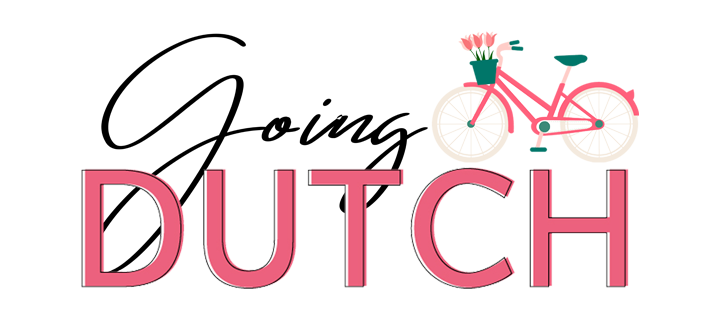Dutch children are the happiest in the world, according to Unicef, who published a report in 2017 on child well-being in rich countries, which ranks The Netherlands number 1 on the list. The report looks at things that contribute to a child’s wellbeing such as material wellbeing, health and safety, educational wellbeing, behaviour and risks, housing and environment and subjective wellbeing.
A few months ago, I read a book by Rina Mae Acosta and Michele Hutchison called The Happiest Kids in the World. It was an easy and interesting read, and gave me insights into why Dutch kids have been named as the happiest in the world.

Co-author Rina Mae Acosta wrote a piece here that sums up the “parenting secrets” to why Dutch kids are the happiest in the world. Interesting to note is that chocolate is a factor! Here’s what she writes:
1. Babies get plenty of sleep
In 2013, a study from the European Journal of Developmental Psychology examined the temperamental differences between U.S. and Dutch babies. “Dutch babies laugh, smile and like to cuddle more than their American counterparts,” the researchers concluded.
According to the study, Dutch infants’ relatively calm demeanor were due in part to a more regulated sleep schedule and lower intensity activities. American parents are known to emphasise the importance of stimulation, exposing their children to a wide variety of new experiences.
Dutch parents, on the other hand, focus on daily activities at home, placing value on the importance of rest and regularity. Parents are uncompromising about the sanctity of sleep. Well-rested babies allow for well-rested parents. Research has declared that the Dutch, on average, get more sleep than any anyone else in the world: A total of eight hours and 12 minutes each night.
2. Kids spend more time with both parents
In 1996, the Dutch government granted part-time employees equal rights as full-timers, paving the way for higher work-life balance. The culture of part-time work is another reason why everyone is much happier over here. With 29-hour work weeks, the Netherlands has the world’s shortest week for business professionals, according to a 2018 OECD study.
Nearly half of the Dutch adult population works part-time, with 26.8% of men working less than the maximum 36 hours a week and 75% of women working part-time — and this is across all sectors, from unskilled workers to professionals.
Like their female counterparts, most Dutch dads squeeze their full-time work hours into just four days. It allows them to dedicate at least one day per week to spend time with their kids. This time off is frequently referred to as “Papadag,” which essentially means “Daddy Day.”
3. Kids feel less pressure to excel in school
Of all the parenting decisions we have to make, choosing a school seems to be one of the most fundamental. But in the Netherlands, it isn’t all about high GPAs and elite universities. Education is seen as the route to a child’s well-being and personal development.
There are two kinds of Dutch higher education qualifications: Research-oriented degrees offered by universities and profession-orientated degrees offered by colleges. You don’t need any specific grades to gain admission to most programs – all you need is to pass your high school exams.
“Schools here invest more energy in motivation than in achievement,” Ruut Veenhoven, a professor of happiness at the Erasmus University, Rotterdam, ells me. “Achievement is what French and English schools focus on, but our research has shown that social skills are instrumental to happiness. They are much more important than a person’s IQ.”
4. Kids are encouraged to express their own opinions
Everyone in the family, including the youngest, has a say.
5. Kids eat “hagelslag” (chocolate sprinkles) for breakfast
Chocolate sprinkles every morning? I can already hear the gasps of disapproval. But hear me out. There’s a deeper meaning behind the chocolate sprinkles.
Sitting down at the table as a family, especially before the day begins, is a routine that essentially defines Dutch family life. Before any meal, the family doesn’t start eating until everyone, children included, is at the table. It’s a sign of respect. Every person counts.
According to the UNICEF report, 85% of Dutch children (between ages 11 and 15) who were surveyed said they eat breakfast with their families every day. Not only is eating breakfast associated with better performance in school and decreased behavioral problems, but research has also found that it encourages family bonding and fosters healthy identity development.
6. Kids are encouraged to bike
The Dutch aren’t big on cars. Because of the flat terrain and network of bicycle paths, biking is the most practical and efficient way to travel. I am definitely a proud “bakfiets moeder,” the Dutch equivalent of an American parent with a minivan.
It rains a lot in the Netherlands. Winter temperatures average between 35 and 40 degrees Fahrenheit, and there are strong winds. Although wind and rain often make conditions uncomfortable for cyclists, the Dutch simply dress themselves and their children in warm clothes, waterproof coats and rain boots.
All-weather biking is truly a character-forming experience. Children are encouraged to bike everywhere and in all weathers because it teaches them grit. They learn that life isn’t always sunny and full of rainbows. They learn to face the rain. They learn not to give up.
The Dutch meaning of success
Like all parents around the world, the Dutch have high ambitions for their children. While our parenting styles may be different, we see happiness as a means to success, as opposed to success as a means to happiness.
Happiness is considered as the gateway to self-awareness, intrinsic motivation, independence, positive ties with their communities — and it’s what we believe cultivates success.
Rina Mae Acosta is a writer and founder of the parenting blog Finding Dutchland. She is also the co-author of “The Happiest Kids in the World: How Dutch Parents Help Their Kids (and Themselves) by Doing Less.”



Comments
Denise Kemp
This is very interesting and sounds like common sense but I suppose that there are lots of us who didn't do all these things.